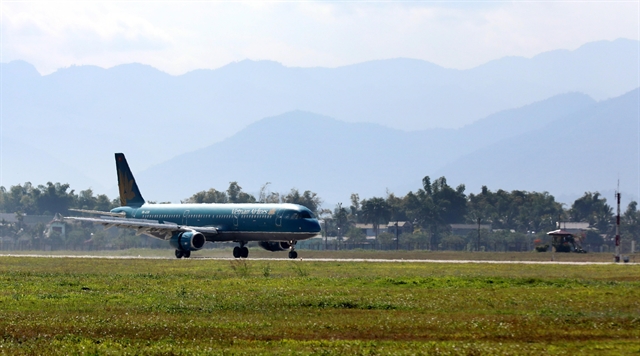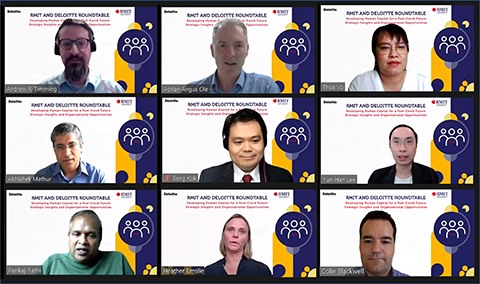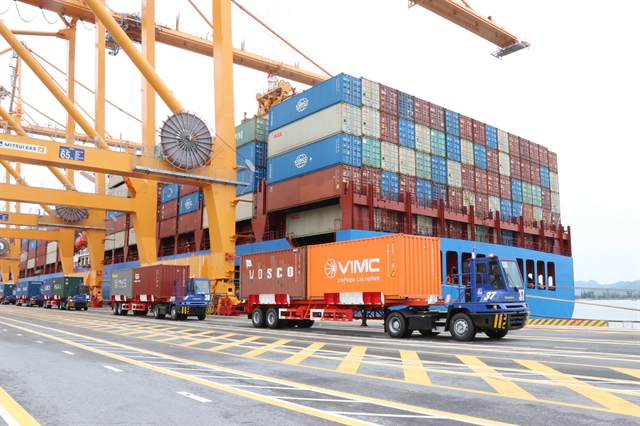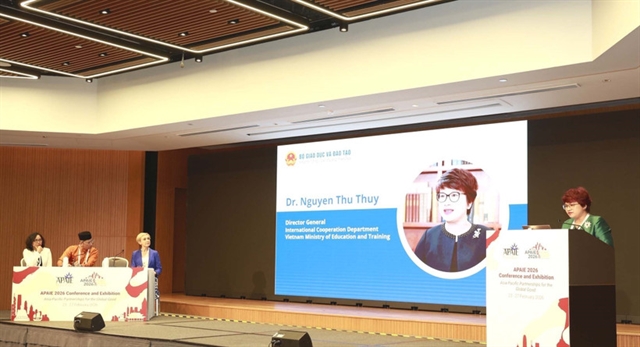

The post-COVID workforce will benefit from innovations that start today, say international experts at a collaborative roundtable held by RMIT University and Deloitte.
The post-COVID workforce will benefit from innovations that start today, say international experts at a collaborative roundtable held by RMIT University and Deloitte.
Given the uncertainties of COVID-19, many organisations have looked to become more adaptable and resilient at identifying opportunities to remedy the negative impacts of the pandemic.
RMIT Senior Program Manager for Human Resource Management Dr Seng Kok observed that “as a route towards achieving this, various organisations have sought to upskill their workforce, as well as adopt new technological innovations to benefit their people and organisation”.
To explore this trend further, top experts in human resource management from RMIT and Deloitte recently co-hosted a roundtable with guest speakers from tech companies Google, VNG Corporation and EnableCode.
Drawing on practices from Vietnam, Asia and the world, the experts offered strategic insights into topics such as workforce digitalisation and analytics, workforce strategy development, business adaptability and agility.

|
Experts from RMIT, Deloitte, Google, VNG Corporation and EnableCode convened to discuss workforce development for a post-COVID future.
Transformed processes
According to RMIT Professor of Human Resource Management Andrew R. Timming, the field of human resource management “is standing on the precipice of a revolution that will disrupt the traditional model of employment.”
He believes that in a few years, human resources textbooks will be anachronistic and the current recruitment process will be transformed. The technological force underlying this disruption is blockchain.
“Imagine a secure, decentralised digital platform containing individual employee portfolios that cover degrees, certificates, letters of reference, performance outputs, performance appraisal data, and many more. With such a platform, employers can easily recruit the right employees,” Professor Timming said.
“Other disruptive technologies like AI/machine learning, big data analytics, augmented reality, and the Internet of Things will also have major parts to play in the recruitment, development, and management of people in organisations.”

|
According to RMIT Professor Andrew R. Timming, blockchain technology will transform recruitment practices. Source: Pixabay.
Organisational adaptability
Deloitte Consulting Southeast Asia Executive Director Adrian Angus Ole advocated the use of data insights to support ‘adaptable organisations’.
“The world is fundamentally different. Stability has given way to unpredictability. The Adaptable Organisation is a living, breathing system organised around networks of how people actually work and behave that embraces change as the new normal,” Mr Ole explained.
Specifically, he recommended using Organisational Network Analysis (ONA), an analytics method that goes below the surface of the formal organisational network to understand how information flows and how people actually work together, bringing to life invisible patterns of connectivity and collaboration.
“COVID-19 has unleashed a rich set of collaboration data and Organisational Network Analysis is the key to unlocking that data’s potential to create meaningful and actionable insights to build resiliency against the negative implications of COVID-19,” Mr Ole said.
“Those insights can lead organisations to fundamentally rethink the way work gets done, remove barriers to collaboration and increase productivity without requiring everyone to physically return to the workplace.”
Improved employee experience
Echoing the benefits of data analytics, VNG Vice President and Chief People Officer Abhishek Mathur shared his company’s success in using workforce analytics to transform the employee experience.
“We collect data from employee surveys and collaborative tools used for work. Workforce analytics has been tremendously helpful for us to not only measure behaviours and increase employee engagement, but also identify key talents, reduce costs, and improve productivity,” Mr Mathur said.
The VNG Chief People Officer also recognised post-COVID opportunities for his company to step up talent attraction and development, health and wellbeing, and the application of a hybrid workplace model.
Addressing the board of experts in the roundtable, Dr Seng Kok from RMIT University said that it is encouraging to see companies across Vietnam and Asia invest in human capital for a post-COVID future.
“Throughout the innovations that are taking place, it’s important to remember that the people are at the heart of every successful change,” he remarked.
The RMIT and Deloitte roundtable attracted around 300 participants, including leaders and key decision makers in a range of industries, as well as students and academics.




